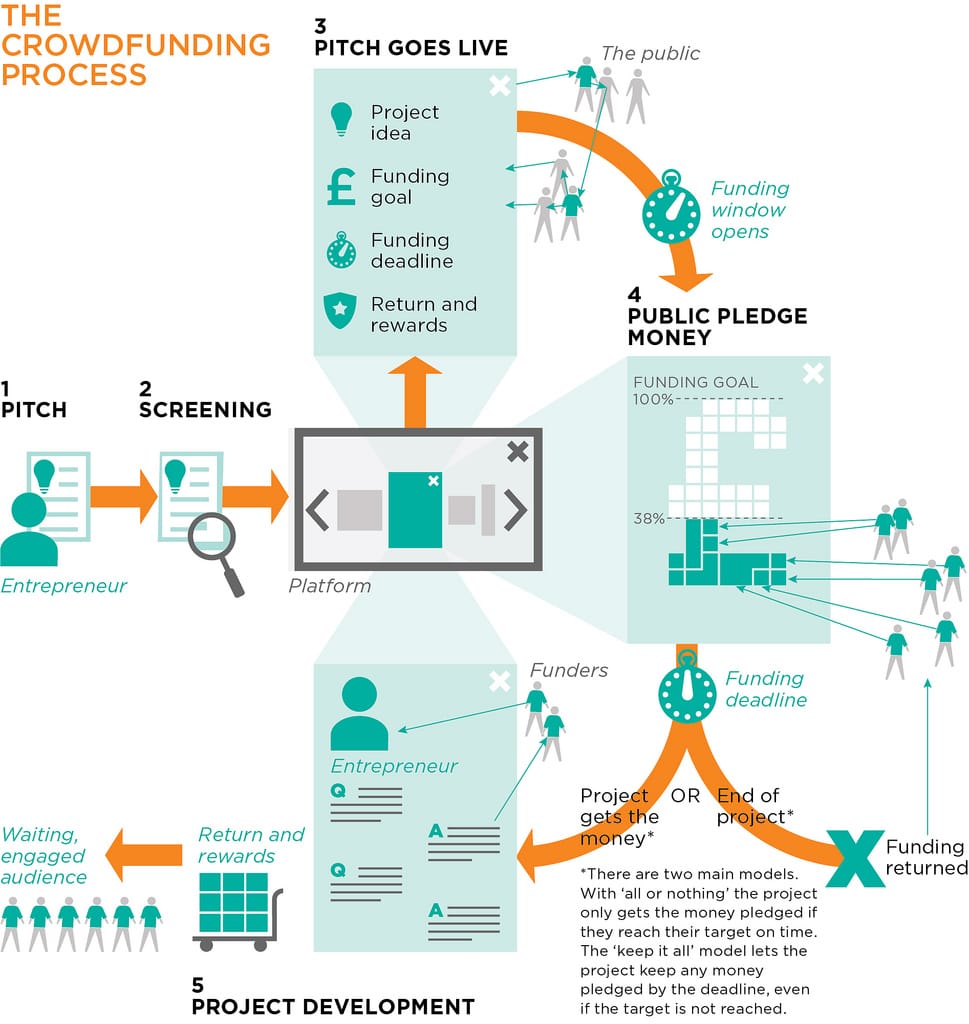Crowdfunding, or sourcing small amounts of capital from a large number of individuals rather than a large amount of capital from a single investor, has become one of the biggest buzzwords in business. New crowdfunding platforms are being created at an astonishing rate, and Kickstarter, arguably the most prominent platform, has raised over $1 billion for projects since its inception in 2009.
 Crowdfunding allows organisations and small projects to raise money in amounts that were previously only possible through venture capitalists or difficult bank loans. Instead of owning equity or earning interest from investing in a crowdfunded project, backers are typically repaid through 'gifts' defined by the organisation and determined by the level of investment, encompassing anything from a recognition of thanks to special events with founders to finished products.
Crowdfunding allows organisations and small projects to raise money in amounts that were previously only possible through venture capitalists or difficult bank loans. Instead of owning equity or earning interest from investing in a crowdfunded project, backers are typically repaid through 'gifts' defined by the organisation and determined by the level of investment, encompassing anything from a recognition of thanks to special events with founders to finished products.
It's not surprising then that nonprofits have taken advantage of this new form of distributed investment to either supplement or entirely replace existing funding models. Two dominant crowd-donation models have come to the fore.
The first gives a crowdfunding spin to conventional fundraisers, with organisations utilising existing platforms to promote mass project-based micro-donations. This means donors can direct their funds to specific projects they are passionate about, whilst the amount remaining to fully fund a project is also made transparent, resulting in higher donation rates targeted at projects that need it to go ahead soonest. This can mean that funds are more often distributed efficiently and the organisation isn't left with a scatter of half-funded projects. Since these external crowd-donations supplement rather than replace core funding, organisations are also somewhat protected from the nonprofit starvation cycle resulting from misunderstood admin costs.
There are dangers though. Donors may be attracted to fund 'exciting' well-marketed projects over 'boring' but essential ones, and external crowd-donations may force organisations to chase donor preferences, dividing funds arbitrarily rather than strategically. In reality, crowd-donations are more an evolution of traditional project-based fundraiser models than a departure from them, and many of the same critiques apply.
However, some innovative new organisations like Kiva and Watsi have gone a step further, placing crowdfunding at the centre of their business models and treating individuals themselves as 'projects' to be funded. Whether it's micro-entrepreneurs on Kiva or medical patients on Watsi, this approach provides a visceral demonstration of the lives that giving can change, without the grossly inflated overheads this normally requires (in child sponsorship schemes, for example). It also places even more control in the hands of donors, for better or worse. Donors now decide, on the most fine-grained level, the most effective ways to spend project funds – effectively democratising the short-term strategic operations of the organisation.
Provided that organisations are transparent and enough information to make informed decisions about projects is available, the reasoned choices of many are arguably more effective than the high-level decisions of the few. However, one could also argue that this moves control from those on the ground, who best understand where funds need to go, to the masses, far removed from the projects in question and more likely to 'vote' arbitrarily.
What do you think? Is crowdfunding paving the way forward for nonprofit organisations, or signalling a dangerous turn to inefficiency and loss of control? Let us know in the comments.



